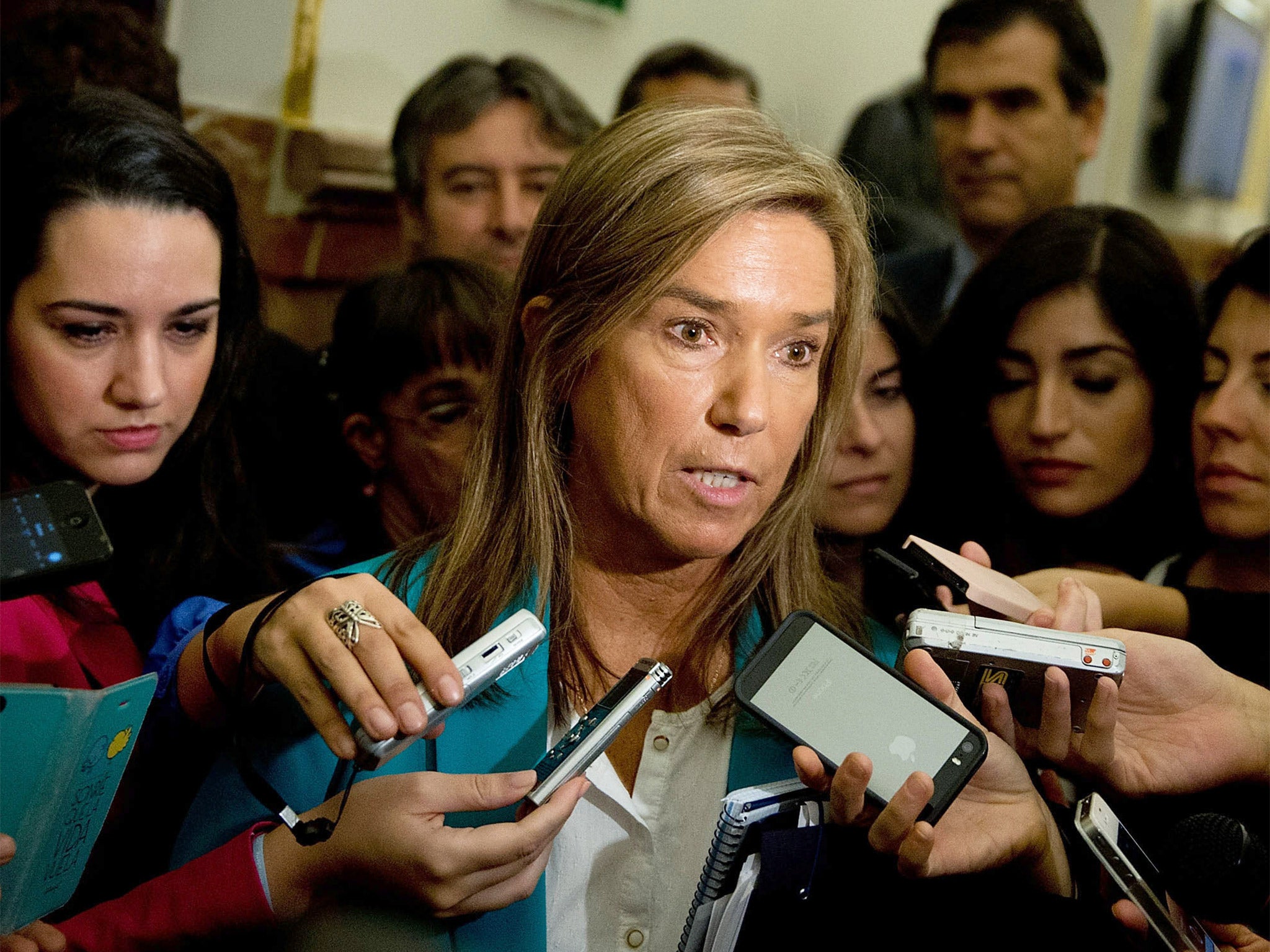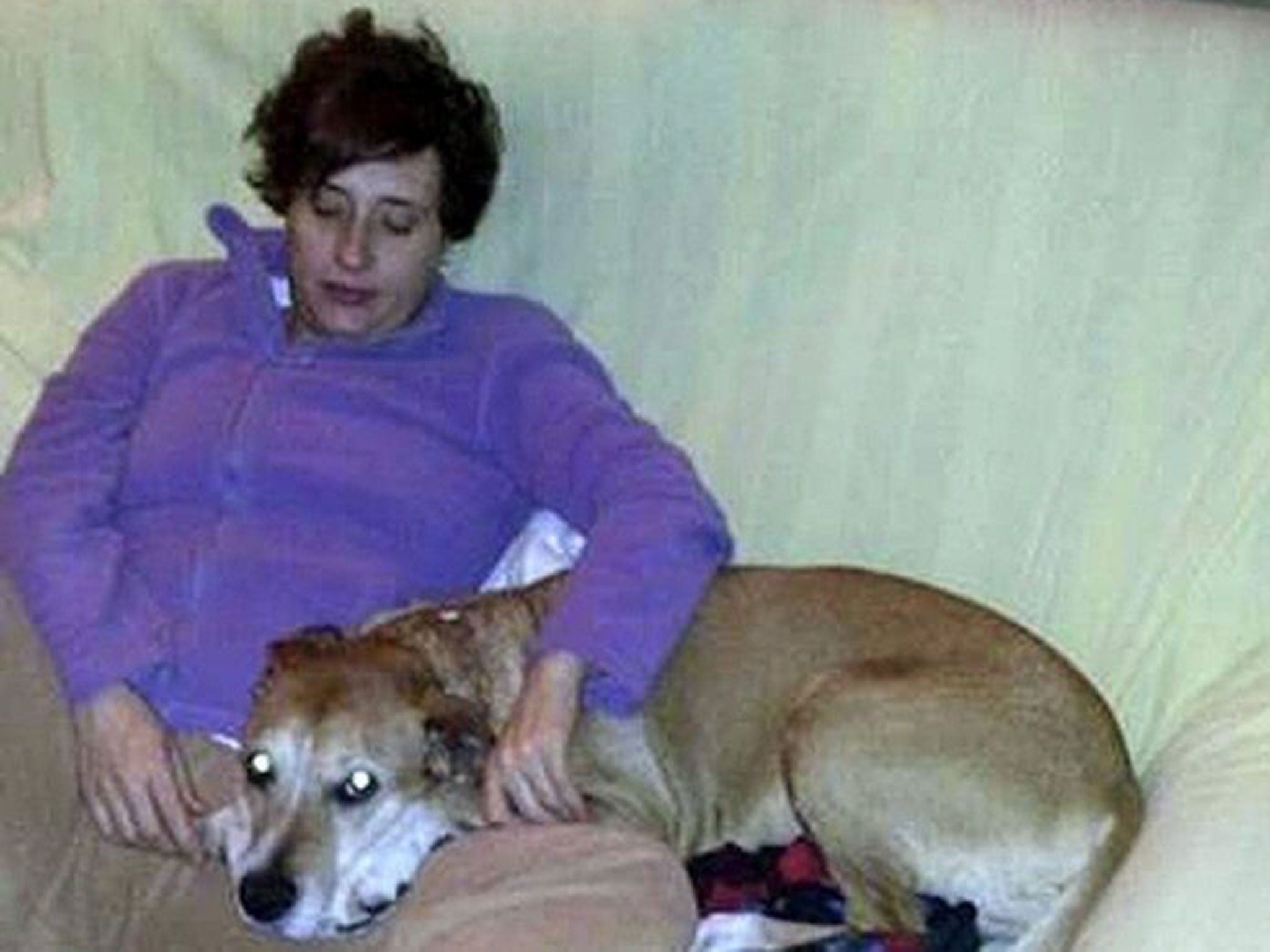Ebola outbreak: Spanish doctors at Teresa Romero Ramos hospital only had '10 minutes training'
Government insists protocols are robust

Your support helps us to tell the story
From reproductive rights to climate change to Big Tech, The Independent is on the ground when the story is developing. Whether it's investigating the financials of Elon Musk's pro-Trump PAC or producing our latest documentary, 'The A Word', which shines a light on the American women fighting for reproductive rights, we know how important it is to parse out the facts from the messaging.
At such a critical moment in US history, we need reporters on the ground. Your donation allows us to keep sending journalists to speak to both sides of the story.
The Independent is trusted by Americans across the entire political spectrum. And unlike many other quality news outlets, we choose not to lock Americans out of our reporting and analysis with paywalls. We believe quality journalism should be available to everyone, paid for by those who can afford it.
Your support makes all the difference.Spanish government claims that its hospital protocols for dealing with Ebola and other high-risk diseases are in top shape were given short shrift by a number of local Madrid medical staff.
One doctor in Madrid’s Carlos III hospital who is due to treat Teresa Romero Ramos – the Spanish nurse who contracted Ebola from a patient at the same hospital – told El Mundo that his course for wearing protective clothing in highly infectious cases had lasted around 10 minutes.
Correctly putting on, or taking off, protective clothing requires a lengthy, complex, protocol but is vital in preventing the spread of infection.
Ms Romero Ramos said she believed that the way she removed that clothing, after treating one of two Spanish missionaries who later died of Ebola, could have been a cause of her own infection. “I see it as the most critical moment, the one in which it [the infection] could have happened, but I don’t know for sure,” she said.
A health official from Madrid’s regional government later accused the nurse of changing her version of events, saying “today she recognised she made a mistake when she took off her protection suit [something] she systematically previously denied.”
He later qualified his statement by saying “I don’t blame her. It was an accident, she’s already got enough to handle.”
Reports said that Ms Romero Ramos reported having a fever to the hospital but, because her temperature was not high enough, she ended up going to a local clinic where she was given paracetamol. It is also reported that she only learned that she had tested positive for Ebola later from media reports.
Read more: BRITAIN SENDS 750 SOLDIERS AND MEDICS TO WESTERN AFRICA
TEXAS SHERIFF'S DEPUTY RUSHED TO HOSPITAL AMID EBOLA FEARS
FIRST US EBOLA VICTIM THOMAS ERIC DUNCAN DIES
MINI-RIOT AS SPANISH AUTHORITIES SEIZE NURSE'S PET DOG
CHARITIES DESPAIR AS AIRLINES REFUSE TO LAND IN WEST AFRICA
The doctor quoted in El Mundo has worked for more than 30 years in the intensive care units in the jointly administered hospitals of La Paz and Carlos III. He said he and more than a dozen colleagues told the hospital’s sub-director “not to insult our intelligence [by] telling us that we have been trained for this”.
A union representative also told El Mundo that although some workers had had up to 50 hours’ training in such cases, “none of it was in a simulated [patient-staff] situation”.

Meanwhile, auxiliary staff in the La Paz hospital said they had had no more than a 30-minute course.
Other staff at Carlos III have criticised recent cuts for underlying deficiencies in training. “When Carlos III was the reference point for infectious diseases [in Spain], the staff were perfectly trained,” Julian Ordoñez, of Spain’s largest trade union, UGT, told the ABC newspaper. “But all of that was dismantled, only to be put back together again ... in a real hurry when the latest cases broke.”
On Monday, health minister Ana Mato claimed: “We have professionals who are magnificently prepared to deal with this situation and with the technical and organisational capability to face it.”
Since then, Ms Mato has been under rising pressure to provide much greater clarity surrounding the case and why it occurred, particularly given that the World Health Organisation assessment is that Spain should have the essential infrastructure and resources to deal with an Ebola outbreak.
Join our commenting forum
Join thought-provoking conversations, follow other Independent readers and see their replies
Comments